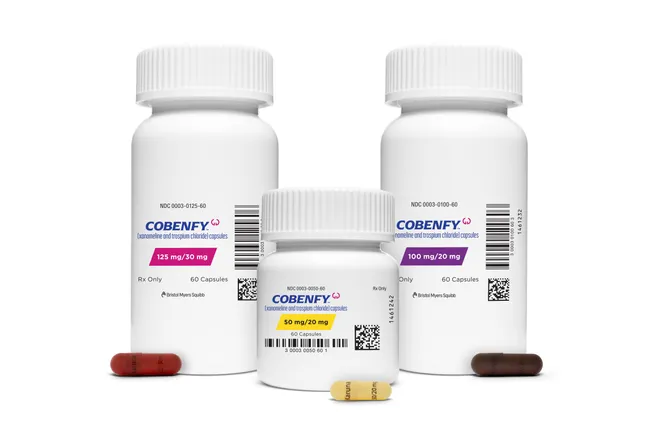Bristol Myers Squibb’s drug Cobenfy has shown promising sales numbers in the first quarter of the year, surpassing expectations and analyst predictions. Despite this success, a recent setback in a clinical trial has raised questions about the drug’s long-term potential in the market.
The phase 3 trial results for Cobenfy, which aimed to improve symptoms in patients with schizophrenia when taken alongside a second-generation antipsychotic, did not show a significant difference compared to a placebo. While Bristol Myers Squibb remains hopeful and describes the data as “encouraging,” some experts have downgraded their sales estimates for the drug, citing concerns about its future performance.
However, the company is still moving forward with testing Cobenfy in other psychiatric disorders, including bipolar disorder, and is expecting data from an Alzheimer’s trial in 2026. The drug, a combination of xanomeline and trospium chloride, was acquired by BMS through the purchase of Karuna Therapeutics and received FDA approval last year.
Although the ARISE trial setback was disappointing, new phase 3 data presented at the 2025 Schizophrenia International Research Society Annual Congress demonstrated Cobenfy’s potential as a stand-alone therapy for schizophrenia. Patients in the EMERGENT-4 and EMERGENT-5 trials showed significant improvements in symptoms over a 52-week period, with no new safety concerns reported.
One of the key advantages of Cobenfy is its improved side effect profile compared to traditional antipsychotic medications, which often cause patients to discontinue treatment due to side effects like weight gain. However, Cobenfy is not without its challenges, as some patients experienced nausea, vomiting, and constipation during treatment.
Bristol Myers Squibb plans to continue studying Cobenfy to explore its market potential further, including revisiting data from the failed ARISE trial to determine next steps. Dr. Samit Hirawat, the company’s chief medical officer, emphasized the importance of analyzing the results and engaging with the medical community and regulators to discuss potential paths forward for the drug.
In conclusion, while Cobenfy may have faced a setback in its clinical trial, Bristol Myers Squibb remains committed to exploring the drug’s potential as a treatment option for adults with schizophrenia and other psychiatric disorders. The company’s ongoing research and dedication to finding solutions for patients highlight its determination to bring innovative therapies to those in need.


